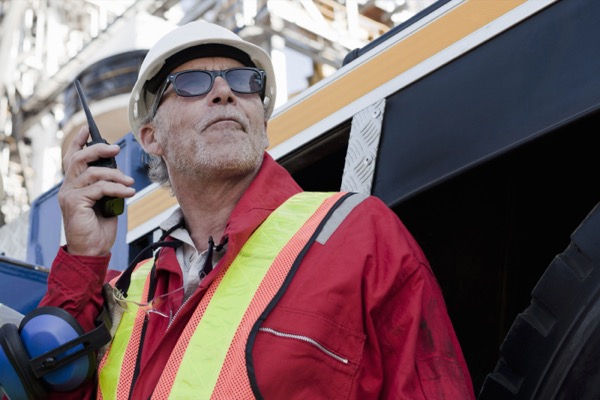Electricity powers the world we live in, but it can also be dangerous if not handled with care. Electrical accidents can happen anywhere, including in the workplace. Offices are no exception, with a wide range of electrical devices and appliances that are used daily. Electrical safety in the office is critical for the protection of employees and the prevention of accidents. In this article, we will discuss various measures that can be taken to ensure electrical safety in the office.
Electrical Hazards In The Office
Electrical hazards in the office can include faulty wiring, damaged electrical cords, overloaded outlets, and electrical equipment that is not maintained or inspected regularly. These hazards can cause electrical shocks, burns, and fires, which can lead to injuries and property damage. It is essential to identify and eliminate electrical hazards in the office to prevent accidents.
Electrical Safety Practices
There are several electrical safety practices that can be implemented in the office. One of the most critical practices is to ensure that electrical equipment is used in a safe manner. This means using equipment that is designed for its intended use, not overloading outlets, and not using electrical equipment that is damaged or in disrepair. Electrical equipment should also be inspected regularly, and any damaged or worn-out equipment should be replaced immediately.
Electrical Safety Training
All employees should receive electrical safety training to ensure they understand the risks associated with electrical equipment and how to use it safely. Employees should be trained on how to identify and report electrical hazards in the workplace, how to use electrical equipment safely, and what to do in case of an electrical emergency. Electrical safety training should be provided to all employees, including temporary workers and new hires.
Electrical Safety Inspections
Regular electrical safety inspections should be conducted to identify and eliminate electrical hazards in the office. Inspections can include checking the condition of electrical cords and outlets, ensuring that all electrical equipment is in good condition and being used safely, and making sure that circuit breakers and fuses are in good working order. Inspections can be conducted by a qualified electrician or a trained employee.
Electrical Safety Equipment
Electrical safety equipment should be available in the office to prevent accidents and protect employees. This equipment can include surge protectors, ground-fault circuit interrupters (GFCIs), and electrical safety signs. Surge protectors can protect electrical equipment from power surges, while GFCIs can protect employees from electrical shocks. Electrical safety signs can be used to identify electrical hazards and remind employees of electrical safety practices.
Electrical Safety Policy
An electrical safety policy should be established in the office to ensure that electrical safety practices are followed consistently. The policy should include guidelines for using electrical equipment safely, reporting electrical hazards, and identifying and eliminating electrical hazards in the workplace. The policy should be reviewed regularly and updated as needed to reflect changes in electrical equipment and practices.
FAQs:
What is electrical safety in the office?
Electrical safety in the office refers to measures that can be taken to ensure the safe use of electrical equipment and prevent electrical accidents in the workplace.
Why is electrical safety important in the office?
Electrical safety is important in the office to protect employees from electrical accidents, such as electrical shocks and burns, and to prevent property damage.
What are some common electrical hazards in the office?
Common electrical hazards in the office can include faulty wiring, damaged electrical cords, overloaded outlets, and electrical equipment that is not maintained or inspected regularly.
What should I do if I experience an electrical shock in the office?
If you experience an electrical shock in the office, it’s important to seek medical attention right away. Even if you feel fine immediately following the shock, you could still have internal injuries that could lead to serious health complications if left untreated. Additionally, it’s important to report the incident to your supervisor or the appropriate person in charge of office safety. They will need to investigate the incident to determine if there are any issues with the electrical system that need to be addressed.
How can I prevent electrical accidents in the office?
There are several steps you can take to prevent electrical accidents in the office, including:
- Regularly inspecting electrical equipment for signs of wear or damage and repairing or replacing any damaged items.
- Ensuring that all electrical equipment is properly grounded.
- Keeping electrical cords and cables neatly organized and free from damage.
- Encouraging employees to report any potential electrical hazards they notice.
- Providing regular training to employees on electrical safety and best practices.
- By taking these steps, you can help create a safer working environment for everyone in the office.
What should I do if I notice an electrical hazard in the office?
If you notice an electrical hazard in the office, such as a frayed cord or a sparking outlet, it’s important to report it to your supervisor or the person in charge of office safety right away. They will need to investigate the hazard and take appropriate action to address it, such as repairing or replacing damaged equipment. In the meantime, it’s important to keep your distance from the hazard and to warn others in the area to do the same.
Can I perform electrical repairs or maintenance on my own in the office?
No, employees should never attempt to perform electrical repairs or maintenance on their own in the office. This is a job for trained professionals who have the knowledge and experience to work safely with electrical equipment. Attempting to repair or maintain electrical equipment on your own could lead to serious injury or even death, as well as damage to the equipment and the electrical system as a whole.
Who is responsible for ensuring electrical safety in the office?
Ultimately, the employer is responsible for ensuring electrical safety in the office. This includes providing a safe working environment, regular inspections and maintenance of electrical equipment, and employee training on electrical safety. However, it’s important for all employees to be aware of potential electrical hazards and to report them to the appropriate person in charge of office safety.
Conclusion
Electrical safety is an important issue that should not be overlooked in the office. By following the tips and best practices outlined in this article, you can help create a safer working environment for yourself and your colleagues. Remember to regularly inspect electrical equipment, report any potential hazards you notice, and never attempt to perform electrical repairs or maintenance on your own. By working together, we can help ensure that everyone stays safe and healthy in the office.







